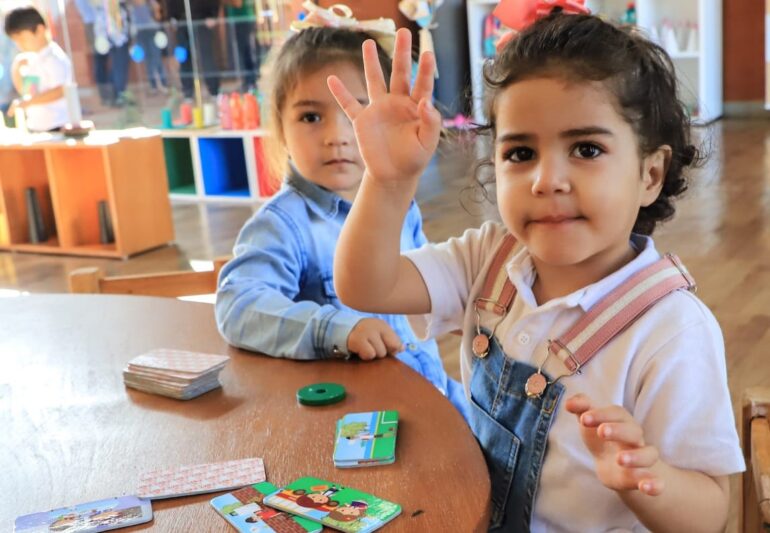A total of 200 technicians, psychologists and professionals from the initial level participated in the training day for trainers of trainers on the NELI program, for early intervention for the development of oral language in children aged 3, 4 and 5 years.
This program will be implemented starting next year, at the request of the Ministry of Education and Science, with support from the United Nations Children’s Fund (UNICEF) Paraguay.
It will be implemented in state-run schools in 135 districts of the 17 departments and the capital, benefiting a population of 50,000 pre-kindergarten, kindergarten and preschool students.
Experts in the program explained that it can yield results within a period of 20 weeks (five months), creating long-lasting effects in terms of strengthening the oral skills of children who have language difficulties. In addition, it improves language skills, listening, storytelling and reading comprehension.
The general coordinator of the NELI Program in Spanish for Hispanic countries, Mariela Ríos, explained that there is a lot of evidence that its effects not only improve oral language, but also reading and reading comprehension in a few years.
She argued that evidence-based education means that the program goes through a rigorous and scientific process, which in the case of NELI, has already been through four controlled trials, where half of the children receive the program and the other half do not. In all the trials and evaluations, they observed that the children who receive the program have very significant improvements in oral language, compared to those who do not participate.
She explained that the initial level, with children between 3 and 5 years old, is the ideal stage to carry out this educational action, considering that as the age increases, the process to obtain significant achievements becomes more complicated.
Among the four components that make up this educational program, there is Online Training, with in-person support and expert support for teachers and anyone planning its implementation; the Oral Language Assessment, which provides results in five minutes; the universal Neli teaching method and NELI Intervention, aimed at children who are at risk of falling behind to help them achieve additional progress.
For her part, Patricia Miciego, an Early Childhood Officer at Unicef Paraguay, said that during the first three years of life, which is the stage in which 80% of the brain develops, we have a window of opportunity. At that time, it is important to talk to them, play with them and interact with them, to have a secure attachment bond, to have someone trustworthy who can be with that child, who can stimulate him.
She highlighted that we propose three games: imitation, when a child begins to speak, to vocalise, where it is important to name things correctly, with an intonation that draws his attention and invites him to imitate; korekogua, which is part of our culture and encourages bonding, attachment, surprise, enthusiasm, joy and playing with the ball, but looking at it and talking, she added.
All of this is part of the activities of the Reading, Writing and Orality Program – Ñe’ẽry, promoted by the Ministry of Education and Science, through the project “Training for the strengthening of professional skills of educators of educational institutions of the official sector of the different levels/modalities at the country level” (Procad).


